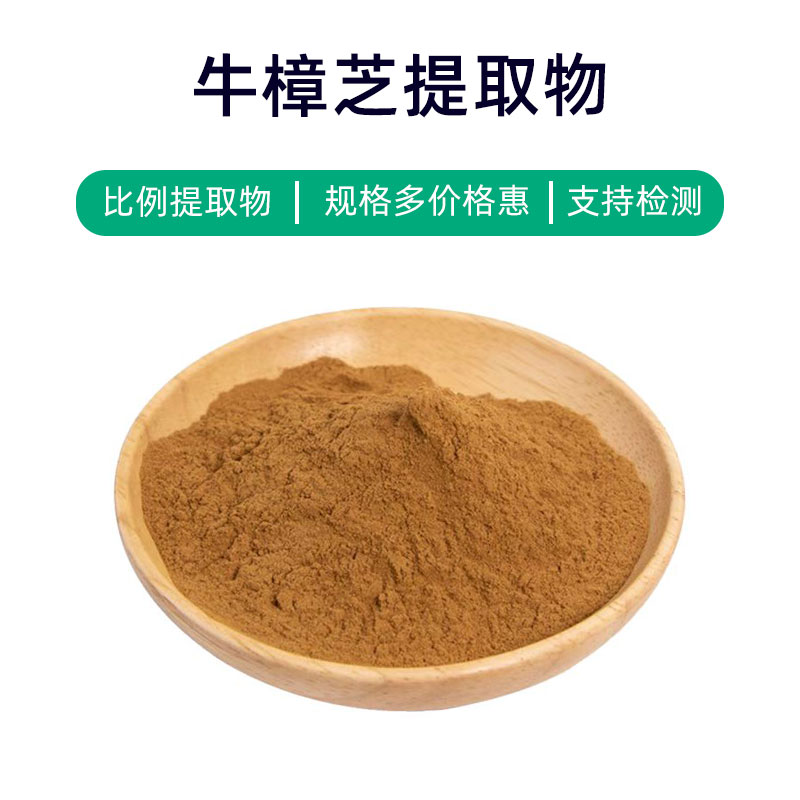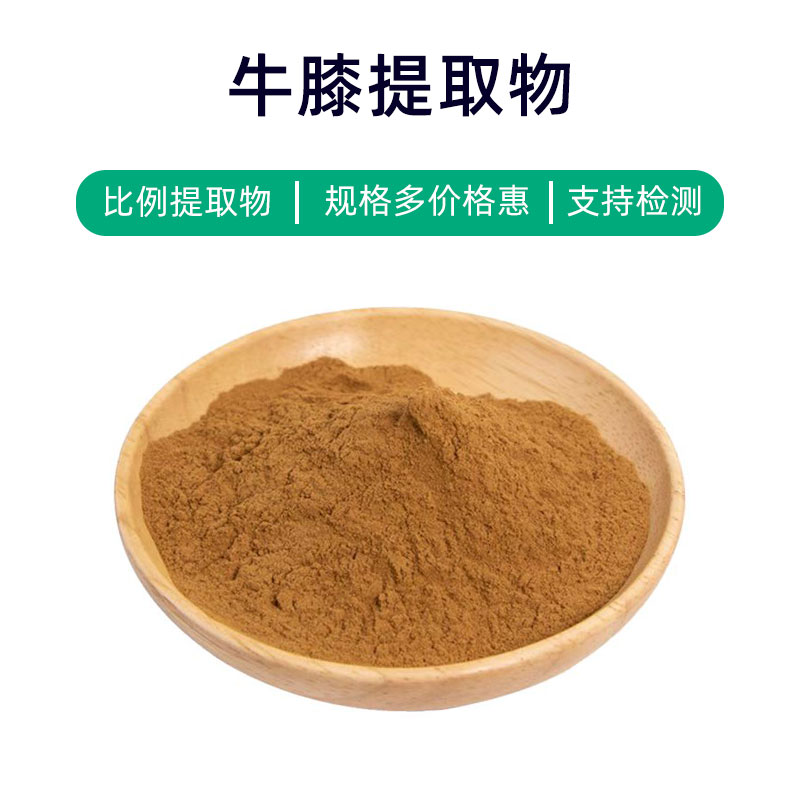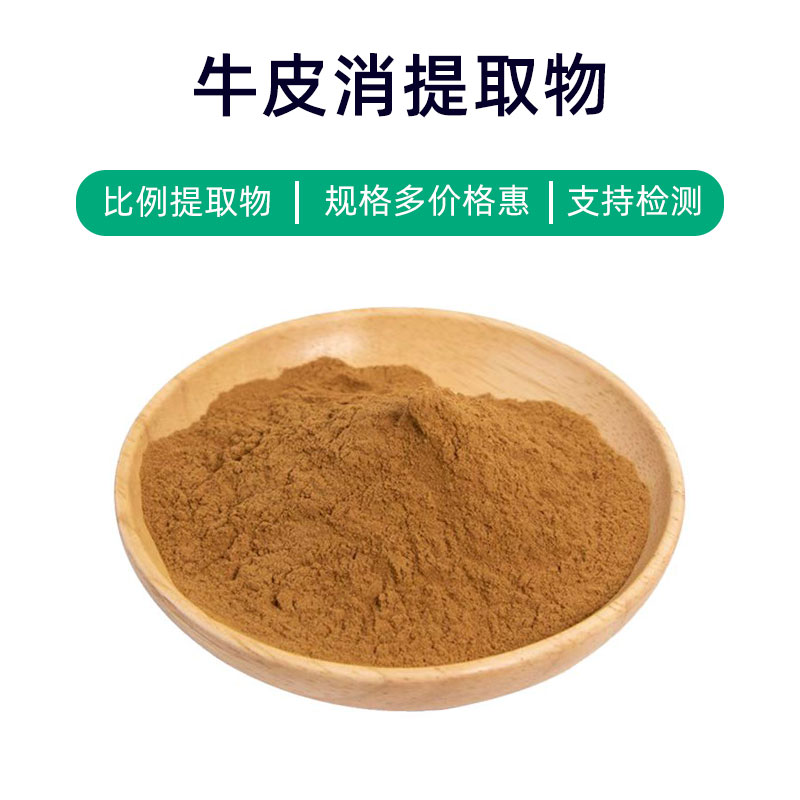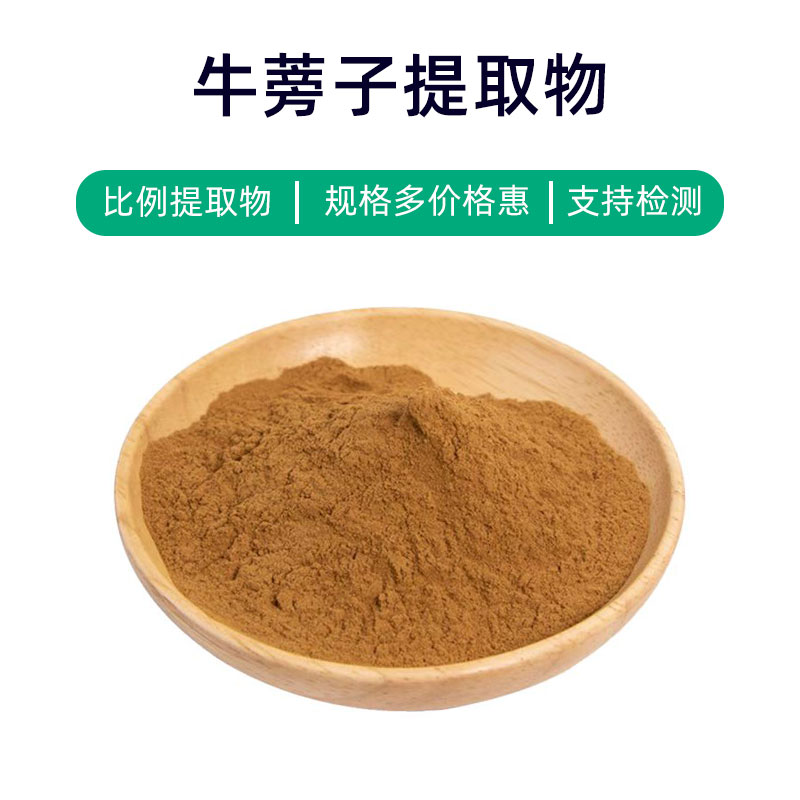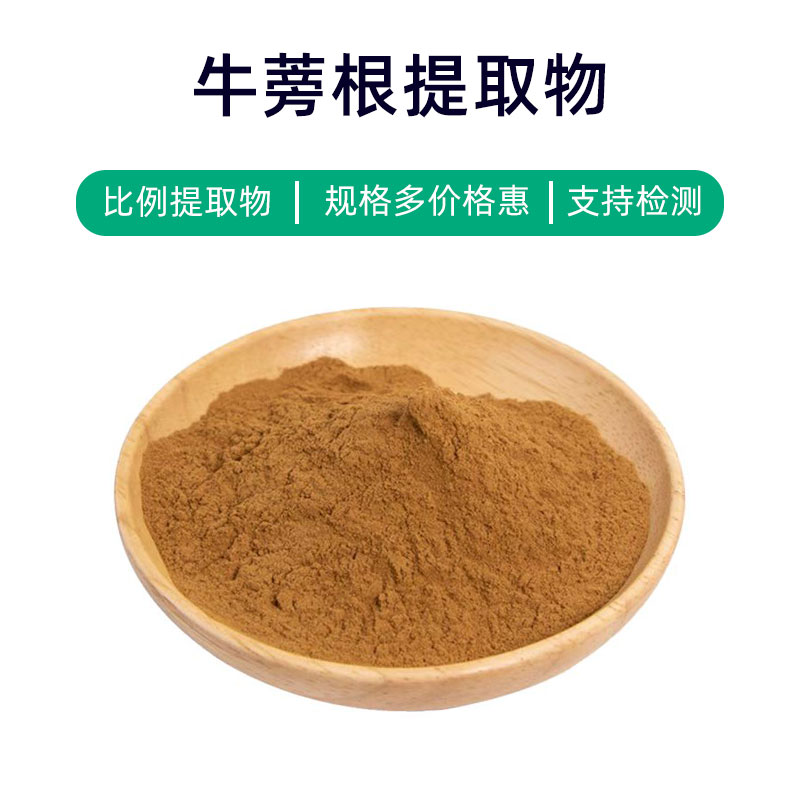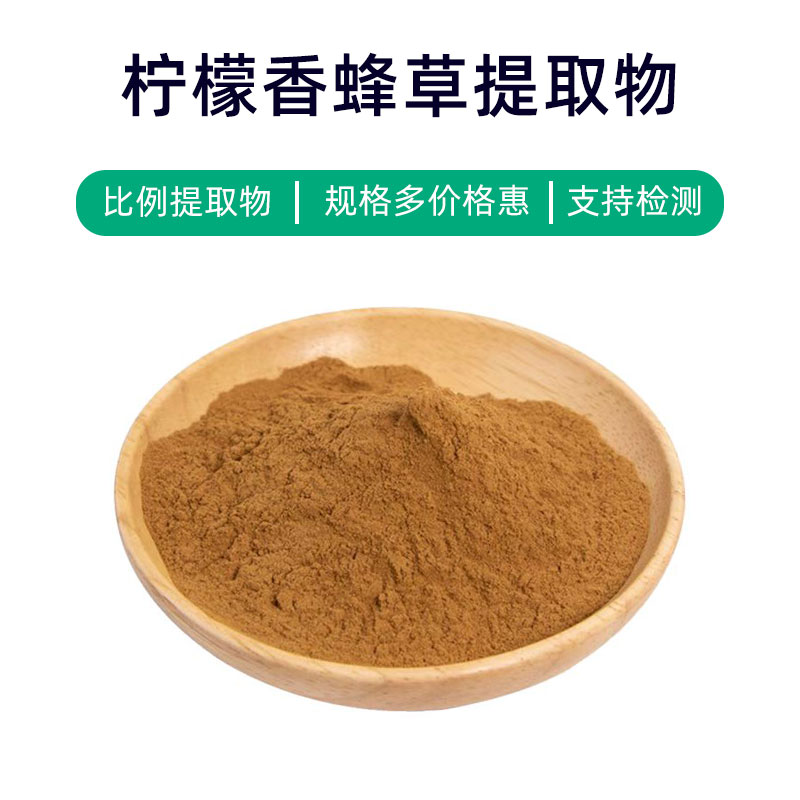Gentian Extract Product Introduction
Gentian extract is a natural plant extract obtained from the Gentiana plant. Its main components include gentian bitter glycosides, gentianine, and flavonoids. It is widely used in pharmaceuticals, health supplements, and cosmetics.
In terms of benefits, gentian extract is believed to promote digestion, increase appetite, and improve indigestion. It is commonly used in the formulation of digestive health products, such as digestive aids and supplements, helping to alleviate stomach discomfort, promote appetite, and enhance digestive function. Additionally, it is often used as a bitter flavoring agent to adjust the taste of foods.
In the pharmaceutical field, gentian extract is frequently used to prepare medications related to the digestive system, such as digestive tablets and enzymes, for treating indigestion, stomach pain, and other symptoms. In health supplements, it serves as a main ingredient to improve digestive health and stimulate appetite. In cosmetics, it is commonly included in products that soothe and balance the skin, such as creams and masks.
In summary, gentian extract is a natural plant extract with extensive application prospects in pharmaceuticals, health supplements, and cosmetics, providing multiple benefits for digestive health and skincare.
Gentian Extract Production Process
The production process for gentian extract typically involves the following steps:
- Raw Material Preparation: Select fresh gentian plants as extraction materials to ensure quality and purity. Gentian is usually harvested during the plant's growth period and processed immediately after harvesting to preserve the stability of its active components.
- Cleaning and Processing: Clean the harvested gentian to remove impurities, dirt, and other contaminants, ensuring the purity of the extract.
- Crushing and Grinding: Crush and grind the cleaned gentian to increase its surface area, facilitating the subsequent extraction steps.
- Extraction: Use suitable solvents (like ethanol, water, or ethyl acetate) to extract the active components from gentian. Different methods can be applied, such as maceration, ultrasonic extraction, or vacuum distillation.
- Filtration and Concentration: Filter the extracted solution to remove solid impurities, then concentrate the solution through heating or vacuum to obtain the extract.
- Refinement and Purification: Refine and purify the extract to eliminate impurities and enhance the product's purity and activity.
- Drying: Dry the purified extract to remove moisture, increasing stability and shelf life.
- Packaging and Storage: Package the dried gentian extract, typically in sealed aluminum foil bags or plastic bottles, and store in a dry, cool, dark environment to maintain its activity and stability.
These steps summarize the general production process for gentian extract; specific methods may vary based on different manufacturers and product requirements.
Gentian Extract Efficacy and Side Effects
Gentian extract is a common herbal extract with several benefits and effects, primarily including the following:
- Anti-Inflammatory and Pain Relief: Gentian extract contains various active components that have significant anti-inflammatory and analgesic properties, useful for relieving various inflammatory pains, such as arthritis and muscle pain.
- Antibacterial and Disinfectant: Gentian extract has strong antibacterial and disinfectant properties, effectively inhibiting bacterial and fungal growth, aiding in the prevention and treatment of skin infections.
- Promotes Digestion: Gentian extract stimulates gastrointestinal motility, enhances digestive fluid secretion, helping digest food and alleviating indigestion and gastrointestinal discomfort.
- Liver Protection: Studies indicate that gentian extract offers some protection for the liver, mitigating liver damage and promoting repair and regeneration of liver cells.
- Blood Sugar Reduction: Active components in gentian extract can lower blood sugar levels, assisting in blood sugar control and providing auxiliary treatment for diabetic patients.
- Antioxidant: Gentian extract is rich in antioxidants, which can neutralize free radicals, slow down cellular aging, and protect the body from oxidative stress.
- Anti-Inflammatory: The extract also modulates internal inflammatory responses, alleviating symptoms associated with inflammation, such as fever and swelling.
- Immune Regulation: Gentian extract can regulate immune system functions, enhancing body resistance and helping prevent respiratory infections like colds and flu.
It’s important to note that while gentian extract has various benefits, there may still be side effects, such as allergic reactions and gastrointestinal discomfort. Therefore, consulting with a physician or pharmacist before use is advised, and it should be used according to medical guidance to avoid adverse reactions.
Gentian Extract Application Scenarios and Dosage
Gentian extract has broad applications in the pharmaceutical, food, and cosmetic industries. Below are its uses and corresponding dosages in various fields:
- Pharmaceutical Field:
- Uses: Gentian extract is often used in traditional Chinese medicine formulas for clearing heat and detoxifying, promoting circulation, reducing swelling, and relieving pain, applicable for treating colds, sore throats, and inflammatory diseases.
- Dosage: Usually taken in forms such as extracts, oral liquids, and capsules, with specific dosages based on product instructions or doctor recommendations.
- Food Field:
- Uses: Acts as a food additive, providing a cool, bitter flavor and aroma to food, and can also be used to manufacture health foods that help regulate the immune system and promote digestion.
- Dosage: When used as a food additive, it should adhere to national food safety standards and production practices to ensure compliant dosing.
- Cosmetic Field:
- Uses: Gentian extract is commonly included in cosmetics for its antioxidant, anti-inflammatory, and skin-soothing properties, applicable in skincare products, masks, and shampoos.
- Dosage: Determined based on the concentration in cosmetic formulations, typically following the recommendations in the product instructions.
- Other Applications:
- Uses: It is also utilized in oral care products and health supplements, contributing to oral and overall health maintenance.
- Dosage: Specific dosages should follow product instructions or doctor recommendations and should not be used excessively.
Caution is advised when using gentian extract, particularly in the pharmaceutical field, to adhere to guidance from healthcare professionals. In the food and cosmetic sectors, selecting products from reputable manufacturers and following product instructions is crucial to ensure safety and effectiveness.
Introduction to Gentian Plant Source, Distribution, and Growth Environment
Gentian (scientific name: Swertia) is a genus of herbaceous plants belonging to the Gentianaceae family, primarily found in regions of Asia, Europe, and North America. Here’s an overview of the gentian plant's source, distribution, and growth environment:
- Plant Introduction:
Gentian is a perennial herb that typically grows between 10 centimeters to 1 meter tall, with upright stems, opposite leaves, and a leathery texture. The flowers are usually blue-purple or yellow, funnel-shaped, with 5-6 petals, and the fruit is a capsule with many seeds. - Distribution:
Gentian is found in temperate and cold regions, being widespread in areas including Asia, Europe, and North America, such as China, Japan, India, Russia, various European countries, and Canada and the United States. - Growth Environment:
Gentian typically thrives in mountainous regions, grasslands, forest edges, moist meadows, and alpine grasslands. They prefer moist soil and semi-shady conditions, commonly seen at altitudes between 1,000 meters to 4,000 meters. - Distribution in China:
In China, gentian is widely distributed across the country, mainly in the northeast, northwest, southwest, eastern China, southern China, and northern China. For example, gentian can be found in provinces like Tibet, Sichuan, Yunnan, Guizhou, and Hunan. - Growth Characteristics:
Gentian has strong adaptability and can thrive in various growth environments. It is relatively cold-resistant and shade-tolerant but can withstand a certain degree of drought.
As a medicinal plant, all parts of gentian, including the roots, stems, and leaves, hold therapeutic value. During harvesting, care is taken to prioritize the medicinal parts while protecting the ecological environment to prevent over-harvesting.
Gentian Extract Processing and Storage
The processing of gentian extract generally involves the following steps: First, the medicinal parts of the gentian, such as roots, stems, and leaves, are collected and then cleaned and initially processed to remove impurities. The extraction process typically uses methods such as aqueous or alcoholic extraction. After extraction, steps like filtration, concentration, and drying are performed to create powdered or liquid products. Finally, the extract is packaged, labeled, and stored. It is generally recommended to keep it in a dry, cool, and ventilated environment, avoiding direct sunlight and moisture to maintain stability and medicinal efficacy.
Monica Sun is a seasoned expert in the plant extraction industry with over a decade of experience in research and production. She specializes in the extraction and purification of plant active ingredients, focusing on driving innovation in natural product applications. Monica has participated in the development of multiple functional plant extracts, delivering high-value natural raw material solutions for the health food, pharmaceutical, and dietary supplement sectors.









